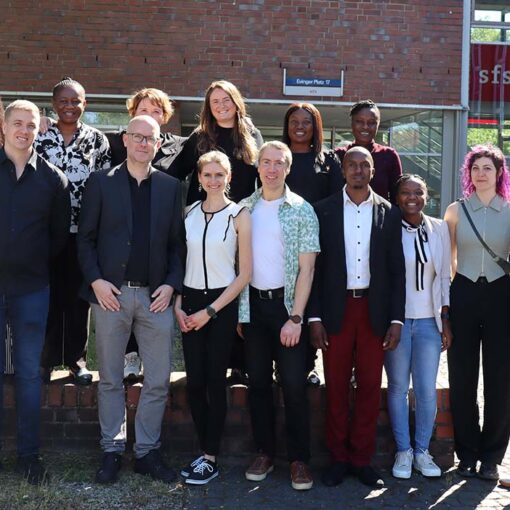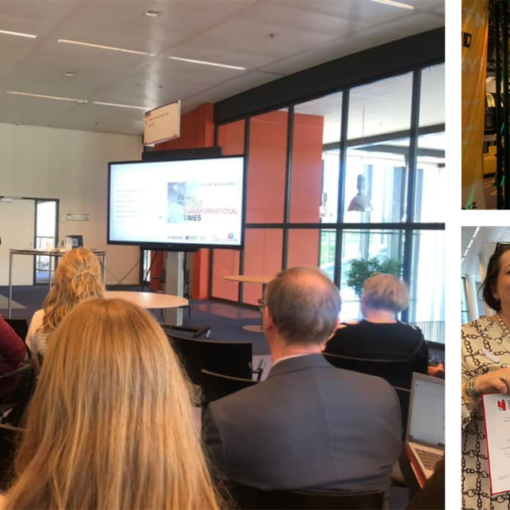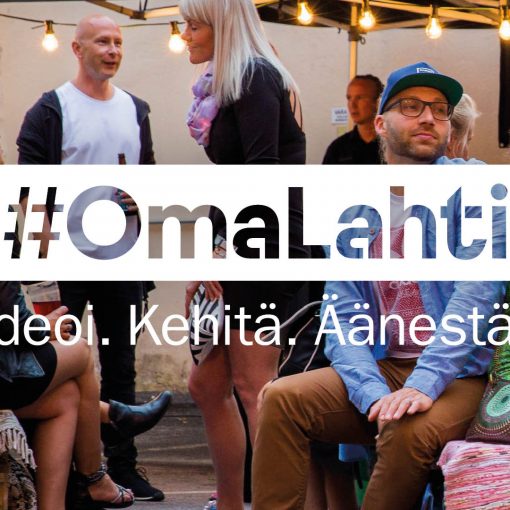The fashion industry has always greatly contributed to carbon emissions and waste. The traditional manufacturing mentality of low costs and quick profits has caused severe social and environmental problems. However, in developed countries, the growing demand for ethical products has stimulated brands to take transparency into account. This transformative evolution has ushered in a new era of sustainable practices, less resource-intensive production and ethical consumption. (Aalto University 2025.)
Fashion and sustainability in Finland
In the face of this environmental crisis, Nordic fashion companies are seen as leading champions of sustainability movements. According to Din, ethical practices are considered a competitive advantage and the basis for business prosperity in an environmentally conscious market, like Finland. (Din 2025.) For example, brands like FRENN, Pure Waste or Globe Hope excel by creating closed-loop production, using recycled fibres and upcycling excess materials into new clothing and accessories (Koiviola 2025). Moreover, more traditional textile companies such as Marimekko and Finlayson have begun to market their environmental achievements. (Marimekko 2025; Finlayson 2025.)
While fashion companies across Finland appear to be committed to sustainability, a report by the ethical trade NGO Eeti draws out a more nuanced outlook on this issue. The research, utilising international “Rank a Brand” criteria, found that 23 Finnish brands scored below average in terms of “being transparent” on climate, environment, and human rights matters. (Yle 2019.)
Indeed, without a clear definition, the term “sustainable fashion” becomes quite subtle to understand. These ambiguous terms, such as “eco-friendly” or “green”, used across different marketing channels, create the impression that brands take sustainability aspects seriously in actions. Nevertheless, the veracity of these claims is often questionable, making it difficult for consumers to hold companies accountable. (Oittinen 2024.)
Potential solutions
To help consumers assess the accountability of marketing messages, the EU has launched a new directive against greenwashing: the Green Claims Directive GCD that will be integrated into Finnish legislation in 2026. One of the aims of GCD is to forbid claims that cannot be scientifically proved. (European Parliament 2024.) Instead of relying solely on certification, companies could take a bold step and consider creating or co-developing an open digital platform based on blockchain or other distributed technologies that could be used to transparently track the journey of each garment from raw material to disposal. (Din 2025.)
Another way to tackle the problem is the Digital Product Passport (DPP). From 2024, the EU has introduced rules requiring most products entering its market to be accompanied by a DPP containing detailed information on the origin of materials, environmental impact, compliance, and disposal. (European Union 2025.) In Finland, there are already a few pilots worth mentioning. For instance, a concept of DPP was created in cooperation between Solita and Gaia Consulting, and Finnish Textile & Fashion and Technology Industries of Finland. Following the principles of open data, the DPP aims to promote product transparency, supply chain traceability, and environmental sustainability within the framework of the EU initiative. (Solita 2022.)
![[Alt text: a label with a text digital product passport.]](https://blogit.lab.fi/labfocus/wp-content/uploads/sites/8/2025/08/343_2025_Beyond-greenwashing-are-Finnish-apparel-brands-truly-a-trailblazer-in-ethics-1024x637.jpg)
Also, Sitra and VTT have published a playbook for implementing PDD. It offers insights, information and practical advice for starting the development process in companies. (Sitra & VTT 2025.)
Last but not least, Aalto University and VTT are developing another innovative solution – invisible digital tags that are embedded in fabrics and are not visible to the naked eye. Not only will eliminating rigid labels reduce the use of plastic and ink, but it will also bring all the information into one place to make it easier to calculate the environmental impact of a product. (Aalto University 2025.)
To sum up
Even as Finnish companies seem to try to fulfil their quest for ethical fashion, it appears that being a 100% trailblazer is debatable. A few ongoing issues, like greenwashing and lack of transparency, will take time to resolve. Promising remedies come in the form of Digital Product Passports or Open Digital Platform, thereby truly paving the path for supply chain transparency. The journey needs both true commitment from companies and more ethical actions on the consumer’s side.
Authors
Din Vu Toan Tkhang is a graduating student at LAB University of Applied Sciences, bachelor’s degree programme in International Business.
Anna Pajari works as a Senior Lecturer at LAB University of Applied Sciences, Faculty of Business and Hospitality Management in Lahti.
References
Aalto University. 2025. Radical Transparency. Cited 21 May 2025. Available at https://aaltouniversity.shorthandstories.com/transparency/index.html
Din, V. T T. 2025. Ethical sourcing for apparel brands in Finland. Bachelor’s thesis. Lahti University of Applied Sciences, Faculty of Business and Hospitality Management. Lahti. Cited 21 May 2025. Available at https://urn.fi/URN:NBN:fi:amk-2025060921745
European Parliament. 2024. ‘Green Claims’ Directive: Protecting consumers from greenwashing. Briefing. Cited 2 Jun 2025. Available at https://www.europarl.europa.eu/thinktank/en/document/EPRS_BRI(2023)753958
European Union. 2025. EU’s Digital Product Passport: Advancing transparency and sustainability. Press release. Cited 21 May 2025. Available at https://data.europa.eu/en/news-events/news/eus-digital-product-passport-advancing-transparency-and-sustainability
Finlayson. 2025. Finlayson ja vastuullisuus. Cited 2 Jun 2025. Available at https://www.finlayson.fi/pages/vastuullisuus
Koiviola, Z. 2025. Leading sustainable fashion brands in Finland: Eco-friendly clothing with purpose. Cited 21 May 2025. Available at https://www.goodnewsfinland.com/articles/five-from-finland/2024/sustainable-fashion/
Marimekko. 2025. Sustainability Strategy. Cited 2 Jun 2025. Available at https://company.marimekko.com/about-marimekko/objectives-strategy/
Oittinen, T. A. 2024. Perceptions of Environmentally Sustainable Fashion by Finnish 25–45-year-old Consumers. Thesis. Jyväskylä University School of Business and Economics, master’s degree Programme in Corporate Environmental Management. Jyväskylä. Cited 21 May 2025. Available at https://urn.fi/URN:NBN:fi:jyu-202406174737
Sitra & VTT. 2025. Digital product passport. Playbook. Cited 2 Jun 2025. Available at https://www.sitra.fi/en/publications/digital-product-passport-playbook/
Solita. 2022. The Digital Product Passport increases the transparency of product data. Cited 21 May 2025. Available at https://www.solita.fi/news/the-digital-product-passport-increases-the-transparency-of-product-data/
Yle. 2019. Report finds room for improvement in Finnish clothing brands’ ethics. Cited 21 May 2025. Available at https://yle.fi/a/3-10744485




